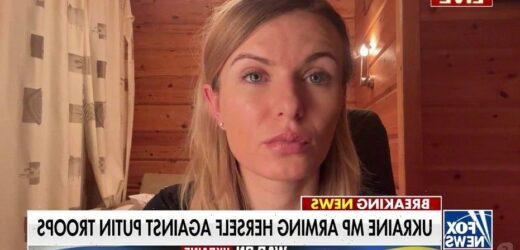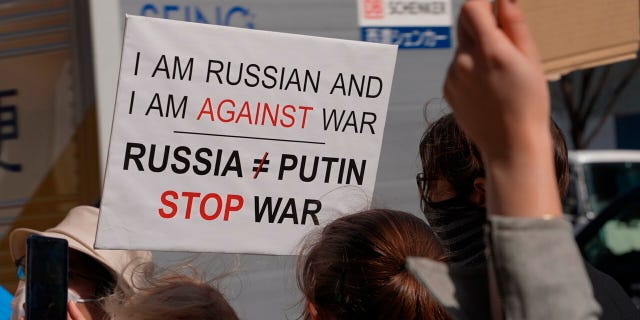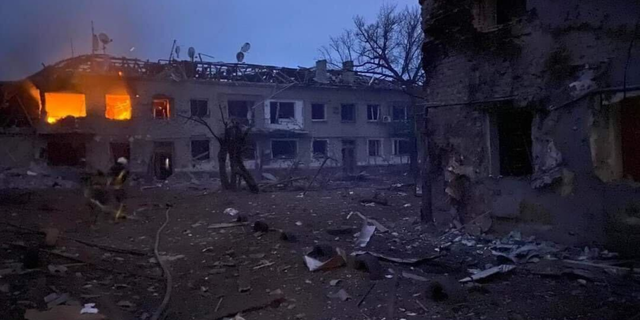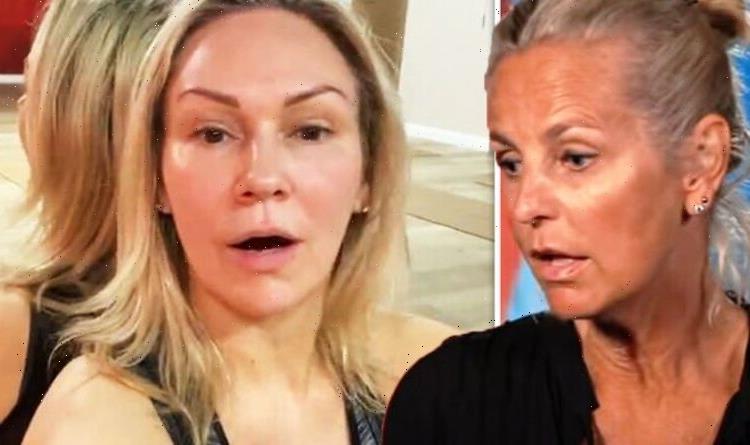Putin is a psychopathic leader: Ukrainian parliament member
Lesia Vasylenko provides insight on NATO’s decision on a no-fly zone and house-to-house combat in the Russia-Ukraine war on ‘The Story.’
Independent and foreign journalists based in Russia are fleeing the country as Russian President Vladimir Putin cracks down on dissenting information about his invasion of Ukraine.
Alexey Kovalyav, an editor at an independent news outlet in Russia and a fellow at the World Press Institute, said he left the country in a Friday tweet.
“Never thought it’d come to this, but I did have to leave Russia, crossing the border on foot in the middle of the night, with my panic-packed bags on my back and my dog in tow,” he wrote. “Felt a massive door slam shut behind my back. Barely had enough time to call my parents. Crazy times.”
Russian journalist and screenwriter Andrew Ryvkin said he was a “Moscow-based screenwriter and journalist” a week ago, but has since become “a refugee” in a Friday tweet.
“My friends are being killed in Ukraine or are trying to flee Russia. An entire life is annulled,” he wrote.
Putin signed a new bill on Friday imposing prison sentences of up to 15 years for those spreading information that goes against the Russian government’s narrative on the war.
“Russian authorities have moved quickly to establish total censorship and control over the free flow of information since Russia invaded Ukraine on February 24,” Gulnoza Said, the Center to Project Journalists’ (CJP’s) Europe and Central Asia program coordinator, said in a Thursday statement. “The Russian public cannot be deprived of information and news and be forced to rely on the Kremlin-approved interpretation of events at this very important time in Russian history. The censorship must stop, and bans must be lifted.”
People hold banners during a march denouncing Russian invasion on Ukraine, in Tokyo, Saturday, March 5, 2022. (AP Photo/Chisato Tanaka)
On Friday, Russia’s state communications watchdog Roskomnadzor blocked access to Facebook and Twitter in Russia, and Russia’s top independent radio station closed Thursday.
Roskomnadzor said in a statement on Feb. 24, when Russia invaded Ukraine, that the “number of cases of dissemination by the media and other information resources operating on the Internet of unverified and unreliable information has significantly increased.”
Multiple U.S. and U.K.-based news outlets have either stopped broadcasting or suspended journalists’ works in Russia. Washington Post reporter Paul Farhi said the newspaper “will remove bylines and datelines from stories produced by” its journalists based in Russia.
“Goal is to ensure staff’s safety,” he said in a Friday tweet. “Been around a while. Never seen anything like this.”
The U.K.’s Sky News reported Monday that Russian forces shot at the outlet’s chief correspondent, Stuart Ramsay, and his team outside Kyiv. Ramsay sustained bullet wounds, and his camera operator, Richie Mockler, took two rounds to his body armor.
Russian authorities have repeatedly and falsely decried reports of Russian military setbacks or civilian deaths in Ukraine as “fake” news. State media outlets refer to Russia’s invasion of Ukraine as a “special military operation” rather than a war or an invasion.
Vyacheslav Volodin, the speaker of the lower house of parliament, said the measure “will force those who lied and made statements discrediting our armed forces to bear very grave punishment.”
“I want everyone to understand, and for society to understand, that we are doing this to protect our soldiers and officers, and to protect the truth,” he added.
Several buildings in Starobilsk within the Luhansk Oblast region of Ukraine show significant damage because of shelling, according to images shared by the State Emergency Service of Ukraine.
(State Emergency Service of Ukraine)
CPJ has called for the protection of Ukrainian and international journalists covering the war.
“At this critical moment, it is crucial that all parties involved recognize that all journalists and media workers are civilians under international humanitarian law, and their rights must be respected and protected,” CPJ Executive Director Robert Mahoney said in a statement. “This also applies to protecting the facilities and equipment utilized for reporting and disseminating news.”
The center offers safety tips for journalists. Journalists in need of emergency assistance can contact [email protected].
The Associated Press contributed to this report.
Source: Read Full Article





